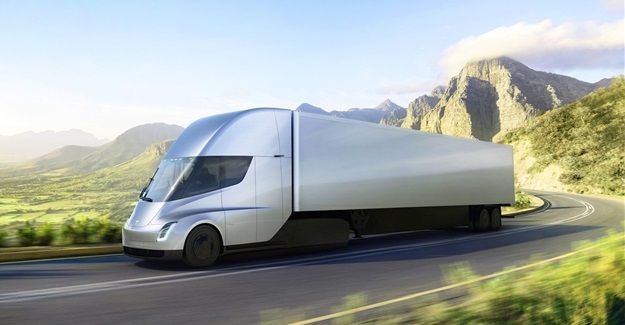
Top stories






AutomotiveHilux Custom Builds offers purpose-built solutions for your business
Toyota South Africa Motors 16 Feb 2026
More news


Marketing & Media
Ads are coming to AI. Does that really have to be such a bad thing?














However, Musk does not hang around and recently unveiled the Tesla Semi, a full-electric truck.
As with any Tesla model, it was revealed with some rather impressive claims, albeit ones which so far are untested. The company says that without a trailer the Tesla Semi can achieve 0-96km/h in just five seconds, a statistic not usually top of mind in the industry, unless it is a racing truck.
Most notably it is said to be able to climb 5% gradients at a steady 100km/h, a significant improvement over most diesel trucks. It also requires no shifting or clutching for smooth acceleration and deceleration, and its regenerative braking recovers 98% of kinetic energy to the battery, giving it a basically infinite brake life, says Tesla.
The cabin is designed specifically around the driver, featuring unobstructed stairs for easier entry and exit, full standing room and a centered driver position for optimal visibility, although there are no passenger seats, at least not in the concept.
Two touchscreen displays provide access to navigation, blind spot monitoring, and electronic data logging. Built-in connectivity integrates directly with a fleet's management system to support routing, scheduling, and remote monitoring.
Megachargers, a new highspeed DC charging solution that Tesla says it is developing, will add about 643km in 30 minutes and can be installed at origin or destination points and along routes, enabling recharging during loading, unloading and driver breaks, says the company.
This part is impressive enough to see companies such as DHL placing early orders with a deposit of $20,000 per truck to test the vehicle in urban delivery environments. However, research in Europe by Aurora Energy Research claims that the power required to meet Tesla's claims for the Megacharger will be about 1,600kW. That is the equivalent to powering 3,0004,000 average homes, for just one 30-minute charge.
The architecture of the all-electric truck is designed to have a higher safety standard than any other heavy-duty truck on the market, says Tesla, with a reinforced battery that shields the truck from impact and gives it a low centre of gravity. Its windshield is made of impact resistant glass. Jackknifing is prevented due to the Semi's onboard sensors that detect instability and react with positive or negative torque to each wheel while independently actuating all brakes.
The surround cameras aid object detection and minimise blind spots, automatically alerting the driver to safety hazards and obstacles. With enhanced autopilot, the Tesla Semi features automatic emergency braking, automatic lane keeping, lane departure warning and event recording. It can also travel in a platooning convoy, where one or several trucks will be able to autonomously follow a lead Semi.
It is unclear whether the technology will allow it to follow other makes of truck as part of the international platooning trials that have been taking place.
With far fewer moving parts than a diesel truck - no engine, transmission, after-treatment system or differentials to upkeep - Tesla understandably says that its Semi will require significantly less maintenance. Its battery is similar in composition to the batteries of Tesla energy products and is designed to support charging cycles for more than 1.6-million kilometres, while its motors are derived from the motors used in the Model 3 car.
Tesla says production will start in 2019 with prices starting from $150,000 for the entry-level truck with a claimed range of 482km. The company says the steep price will be offset by savings of more than $200,000 over 1.6-million kilometres based on fuel savings alone. That remains to be seen and for now, we watch to see how the rest of the truck industry responds.
Will it arrive in SA? Well, Musk did promise that Tesla Motors would launch in SA in 2018, initially with the Model 3 sedan, but in spite of repeated requests from Motor News, none of the Tesla executives we have spoken to has been willing to comment on plans for SA.
Source: Business Day

For more than two decades, I-Net Bridge has been one of South Africa’s preferred electronic providers of innovative solutions, data of the highest calibre, reliable platforms and excellent supporting systems. Our products include workstations, web applications and data feeds packaged with in-depth news and powerful analytical tools empowering clients to make meaningful decisions.
We pride ourselves on our wide variety of in-house skills, encompassing multiple platforms and applications. These skills enable us to not only function as a first class facility, but also design, implement and support all our client needs at a level that confirms I-Net Bridge a leader in its field.
Go to: http://www.inet.co.za